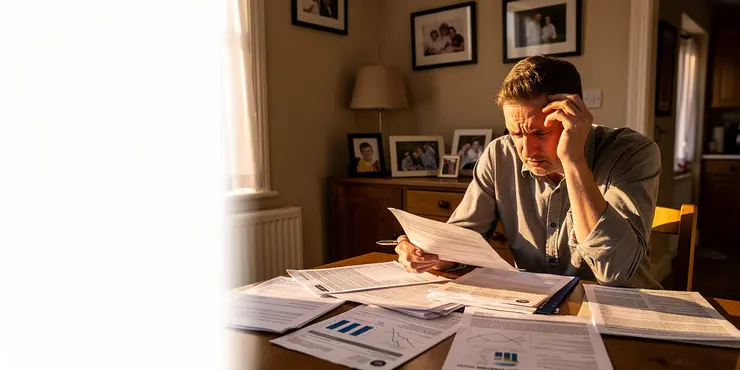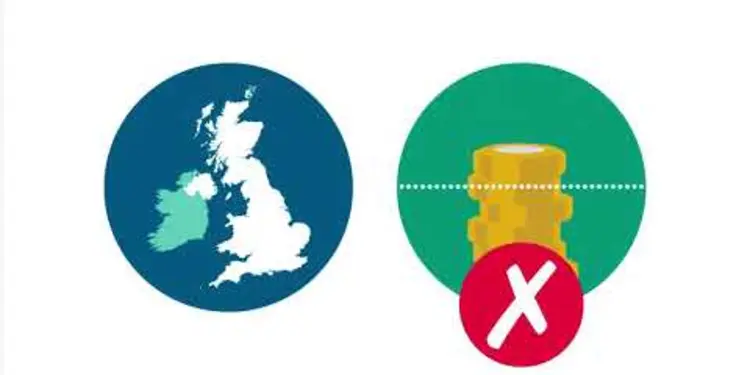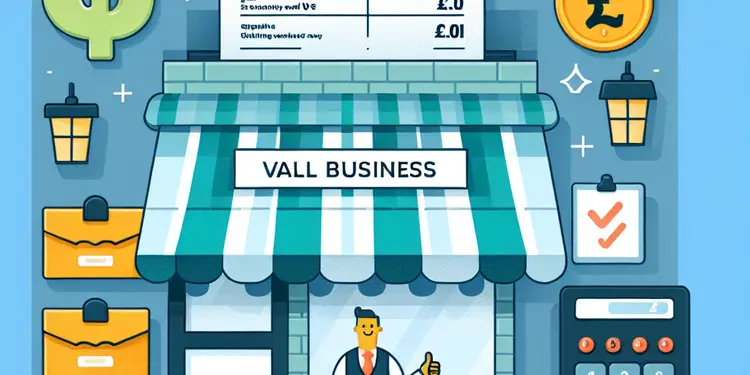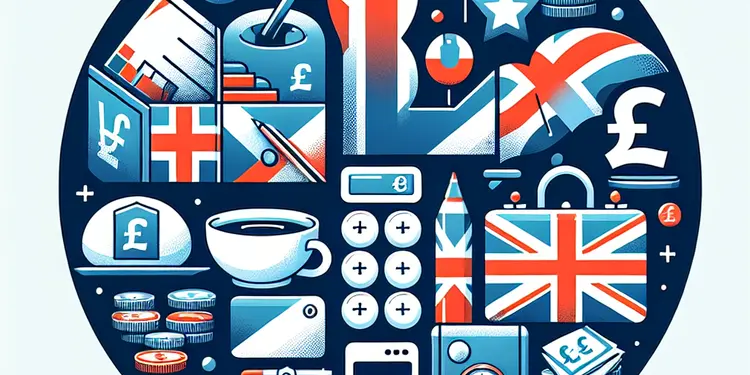
Find Help
More Items From Ergsy search
-

Can businesses be charged Stamp Duty?
Relevance: 100%
-

What is Stamp Duty in the UK?
Relevance: 82%
-

Why do we pay Stamp Duty?
Relevance: 76%
-

Who pays Stamp Duty in the UK?
Relevance: 76%
-

How do I pay Stamp Duty in the UK?
Relevance: 76%
-

Are there different rates of Stamp Duty in the UK?
Relevance: 76%
-

What was the Stamp Duty holiday in the UK?
Relevance: 76%
-

When is Stamp Duty payable in the UK?
Relevance: 75%
-

How is Stamp Duty calculated in the UK?
Relevance: 74%
-

Can Stamp Duty be included in a mortgage in the UK?
Relevance: 73%
-

Can Stamp Duty be refunded in the UK?
Relevance: 73%
-

What is the current threshold for Stamp Duty in the UK?
Relevance: 73%
-

Is there a penalty for late payment of Stamp Duty in the UK?
Relevance: 73%
-

Is there a Stamp Duty exemption for first-time buyers in the UK?
Relevance: 71%
-

What properties are exempt from Stamp Duty?
Relevance: 69%
-

How does Stamp Duty affect shared ownership properties?
Relevance: 66%
-

What about Stamp Duty in Wales?
Relevance: 63%
-

What is Stamp Duty Land Tax (SDLT)?
Relevance: 57%
-

Does Scotland have a different Stamp Duty system?
Relevance: 57%
-

What is the fiduciary duty of directors to shareholders?
Relevance: 39%
-

What is fiduciary duty and how does it relate to director disputes?
Relevance: 35%
-

What does 'fiduciary duty' mean in pension advice?
Relevance: 34%
-

Can my employer stop me from attending jury duty?
Relevance: 30%
-

Can I use my phone during jury duty?
Relevance: 30%
-

Can businesses claim the EV grant?
Relevance: 28%
-

Will the Trump Tariffs affect my business?
Relevance: 27%
-

Do I need to register my business for VAT?
Relevance: 27%
-

What is the Small Business Administration (SBA)?
Relevance: 27%
-

Do all businesses need to charge VAT?
Relevance: 27%
-

When should a business register for VAT?
Relevance: 26%
-

Are there grants for businesses to install charging points?
Relevance: 26%
-

Is there any relief for business assets in Inheritance Tax?
Relevance: 26%
-

Can businesses be exempt from hosepipe bans?
Relevance: 26%
-

Is the HMRC Employer Bulletin relevant for small businesses?
Relevance: 25%
-

Are there government grants available for starting a small business?
Relevance: 25%
-

Can businesses apply for the Plug-in Car Grant?
Relevance: 25%
-

Can businesses get grants for electric vehicles?
Relevance: 25%
-

Does the sugar tax apply to small businesses?
Relevance: 25%
-

Exercise Routines for Busy Parents
Relevance: 25%
-

What types of government support are available for small businesses?
Relevance: 25%
Understanding Stamp Duty for UK Businesses
In the United Kingdom, Stamp Duty is a tax levied on certain legal documents. Traditionally, it was a duty on documents rather than transactions themselves, but over time, it has evolved. For businesses in the UK, understanding whether they are liable for Stamp Duty is important, especially during property transactions or when dealing with certain share transactions.
Stamp Duty Land Tax (SDLT)
For businesses purchasing property, Stamp Duty Land Tax (SDLT) is the most relevant form of Stamp Duty. SDLT is a tax on properties and land transactions in England and Northern Ireland. If a business buys land or property, including commercial spaces, that surpasses a specific threshold, SDLT will be applicable. As of 2023, the threshold for non-residential property and land is £150,000 for lease premiums and assignments.
Rates for SDLT on non-residential property vary. They start at 0% for transactions under £150,000 and increase in tiers up to 5% for portions of the transaction over £250,000. Businesses involved in property investment, development, or trading need to carefully calculate their SDLT obligations to ensure compliance.
Stamp Duty on Shares
Businesses buying shares are subject to a different form of Stamp Duty. When a company or business purchases shares on the stock market, they might need to pay Stamp Duty Reserve Tax (SDRT) or regular Stamp Duty. The usual rate is 0.5% of the transaction value. This tax applies whether the purchase is for listed or unlisted shares.
There are exemptions, such as transferring shares to a charity or when the consideration is below £1,000. Companies need to be aware of the specifics of their transactions to determine if Stamp Duty is payable and under what conditions exemptions could be applicable.
Exemptions and Reliefs
Several exemptions and reliefs exist for both SDLT and Stamp Duty on shares. For example, group relief might apply to property transfers between members of the same group, effectively exempting them from SDLT. Similarly, there might be reliefs available for specific types of property transactions, such as property used for charity purposes.
Businesses should consult with tax advisors or legal professionals to explore potential reliefs and ensure they do not overpay or overlook applicable taxes. Understanding the intricate rules surrounding these exemptions can significantly benefit businesses looking to optimize their transactions financially.
Conclusion
In summary, businesses in the UK can indeed be charged Stamp Duty, primarily through SDLT on property and Stamp Duty or SDRT on share transactions. It is crucial for businesses to understand their obligations and explore eligible exemptions or reliefs to maintain tax compliance. Proper awareness and management of Stamp Duty liabilities can provide significant cost savings and ensure legal compliance for businesses engaging in property development or share acquisition.
Understanding Stamp Duty for UK Businesses
In the UK, Stamp Duty is a tax you pay on some types of legal documents. In the past, it was charged on documents, not on sales. But now, it is different. For UK businesses, it is important to know if they have to pay Stamp Duty. This is especially true when they buy property or deal with shares.
Stamp Duty Land Tax (SDLT)
When businesses buy property, Stamp Duty Land Tax (SDLT) is important. SDLT is a tax on buying buildings and land in England and Northern Ireland. If a business buys a piece of land or a building that costs more than a certain amount, they have to pay SDLT. In 2023, this amount is £150,000 for business land or buildings.
The amount of SDLT you pay depends on how much the property costs. You pay nothing if it costs less than £150,000. If it costs more, you pay more SDLT, up to 5% for parts of the price over £250,000. Businesses that buy, build, or sell properties need to check how much SDLT they should pay.
Stamp Duty on Shares
If businesses buy shares in other companies, they might have to pay a different Stamp Duty. This is called Stamp Duty Reserve Tax (SDRT) or just Stamp Duty. You usually pay 0.5% of the share price. You pay this whether the shares are from big stock markets or smaller ones.
Sometimes, you do not have to pay Stamp Duty, like if you give shares to a charity or if the shares are worth less than £1,000. Companies must check the rules to see if they need to pay Stamp Duty and if there are any exceptions.
Exemptions and Reliefs
There are rules that let you pay less or no Stamp Duty. For example, if a company moves property between related companies, they might not pay SDLT. There are also exceptions for some property deals, like those involving charities.
Businesses should talk to tax experts or lawyers. They can help find ways to pay less tax and make sure all taxes are paid correctly. Understanding these rules can help businesses save money when they buy property or shares.
Conclusion
In short, UK businesses may need to pay Stamp Duty. They pay SDLT when buying property and Stamp Duty or SDRT when buying shares. It is key for businesses to know what taxes they need to pay and look for any ways to pay less. Knowing about Stamp Duty can save money and help businesses follow the law when they buy properties or shares.
Frequently Asked Questions
What is Stamp Duty?
Stamp Duty is a tax that governments place on legal documents, usually in the transfer of assets or property.
Can businesses be charged Stamp Duty?
Yes, businesses can be charged Stamp Duty when they purchase properties or certain other assets.
Do all business transactions incur Stamp Duty charges?
Not all business transactions incur Stamp Duty. It typically applies to the transfer of property and certain other assets.
What types of transactions are subject to Stamp Duty for businesses?
Transactions like the purchase of land, buildings, and sometimes lease agreements are subject to Stamp Duty for businesses.
How is Stamp Duty calculated for businesses?
Stamp Duty is often calculated based on the value of the property or asset in question and can vary by jurisdiction.
Are there ways businesses can reduce Stamp Duty costs?
Businesses can sometimes reduce Stamp Duty costs through various legal exemptions or reliefs available in certain jurisdictions.
Is Stamp Duty the same in every region?
No, Stamp Duty rules and rates can vary significantly between different countries and even within regions of the same country.
What happens if a business doesn't pay the required Stamp Duty?
If a business fails to pay Stamp Duty, they may face fines, interest charges, and legal complications.
Can Stamp Duty be claimed as a business expense?
In some jurisdictions, businesses may be able to claim Stamp Duty as a deductible expense, but this depends on local tax laws.
Are there exemptions to Stamp Duty for businesses?
Yes, some jurisdictions offer exemptions for certain types of transactions or businesses, such as first-time commercial property purchases.
What types of property purchases require Stamp Duty?
Most real estate purchases, including commercial and industrial properties, typically require Stamp Duty.
Does the type of business entity affect Stamp Duty liability?
The type of business entity can sometimes affect Stamp Duty, as different rules might apply to corporations, partnerships, or sole traders.
How can a business find out their Stamp Duty obligations?
A business can determine their Stamp Duty obligations by consulting local tax authorities or a tax professional.
Can Stamp Duty be deferred for businesses?
Some jurisdictions may allow deferral of Stamp Duty payments under specific circumstances, but this is not universally available.
Is Stamp Duty charged on company shares or stock transactions?
In some places, transactions involving company shares or stocks may incur a similar duty, often called Stamp Duty Reserve Tax.
What is the penalty for late payment of Stamp Duty?
Penalties for late payment of Stamp Duty can include interest charges and additional financial penalties.
Can businesses appeal a Stamp Duty assessment?
Yes, businesses can typically appeal a Stamp Duty assessment if they believe it to be incorrect or unfair.
How long do businesses have to pay Stamp Duty?
The timeframe for paying Stamp Duty varies by jurisdiction but is often required within 30 days of the transaction.
How does Stamp Duty affect business mergers and acquisitions?
Stamp Duty can be a significant cost factor in mergers and acquisitions, particularly where property or significant asset transfers are involved.
Do non-profit organizations have to pay Stamp Duty?
Non-profit organizations may have exemptions or reduced rates for Stamp Duty, but this depends on local laws.
What is Stamp Duty?
Stamp Duty is a tax. You pay it when you buy a house or land. It's money you give to the government. The amount depends on the price of the home. You pay more if the house costs more.
Tips to help you understand:
- Ask someone to read with you.
- Use a calculator to help with numbers.
- Draw a picture of a house to show how it works.
Stamp Duty is money you pay to the government for certain papers, like when you buy a house or land.
Do businesses have to pay Stamp Duty?
Yes, businesses might have to pay something called Stamp Duty when they buy buildings or other things.
Do you have to pay Stamp Duty for every business deal?
Stamp Duty is a tax that you pay when you buy things like houses and some other big items. But, you don't have to pay this tax on everything you buy.
What business deals need to pay Stamp Duty?
When a business buys things like land, buildings, or sometimes when they rent a place, they might have to pay something called Stamp Duty.
How do businesses work out Stamp Duty?
Businesses pay money called Stamp Duty when they buy property or land. Here's how to work it out:
- Check the property's price.
- See what rate applies. The rate can change based on the price.
- Multiply the price by the rate. This gives the Stamp Duty amount.
If you're finding it tricky, you can use a Stamp Duty calculator online. Ask for help if you need it.
Stamp Duty is a tax. You pay it when you buy a house or something valuable. The amount you pay can be different depending on where you live.
How can businesses pay less Stamp Duty?
Businesses want to spend less money on Stamp Duty. Here are some simple ways:
- Get Advice: Talk to a money expert. They can help find ways to pay less.
- Plan Ahead: Think about Stamp Duty costs before buying something big.
- Use Tax Breaks: Some kinds of business deals might have special tax rules to help pay less.
- Stay Updated: Keep informed on new rules. Rules can change, and new ways to save money might appear.
Always ask for help if you are unsure. Using these tips can make it easier to save money on Stamp Duty.
Sometimes, businesses can pay less Stamp Duty. This is because there are special rules or help they can use in some places to save money.
Is Stamp Duty the Same Everywhere?
No, Stamp Duty is not the same everywhere.
It can be different in each region.
If you need help, use a calculator or ask someone who knows about Stamp Duty.
No, Stamp Duty rules and rates are different in each country. They can even be different in different areas of the same country.
What if a business doesn't pay Stamp Duty?
If a business doesn't pay Stamp Duty, it can get into trouble. The government might ask for more money called a fine. The business may have to pay this fine on top of the Stamp Duty.
Tools and tips to help:
- Use a calendar to remember important dates for payments.
- Ask a friend or a financial advisor to help with paperwork.
- Use online tools to calculate the right amount to pay.
If a business does not pay Stamp Duty, they could get in trouble. They might have to pay extra money, like fines and interest. They could also face legal problems.
Can a business get money back for Stamp Duty?
In some places, businesses can sometimes get money back on the Stamp Duty they pay. This depends on the local tax rules.
Do businesses have to pay Stamp Duty, or do they get any discounts?
Yes, some places do not make you pay taxes on certain things. For example, if it's your first time buying a business property, you might not have to pay.
When do you need to pay Stamp Duty when buying a property?
When you buy a building or land, like shops or factories, you usually have to pay a special tax called Stamp Duty.
Can the kind of business change Stamp Duty?
Different kinds of businesses have different rules for paying Stamp Duty. This means that if you have a company, a partnership, or just work by yourself, the rules might not be the same.
How can a business know what Stamp Duty they need to pay?
A business can find out how much Stamp Duty they need to pay by asking local tax offices or talking to a tax expert.
Can businesses pay Stamp Duty later?
In some places, you might be able to delay paying Stamp Duty, but only in special situations. This option is not available everywhere.
Do you pay Stamp Duty when you buy company shares or stocks?
In some places, when you buy or sell company shares (pieces of a company), you might have to pay a tax. This tax is often called Stamp Duty Reserve Tax.
What happens if you pay Stamp Duty late?
If you are late paying Stamp Duty, you might have to pay extra money. This extra money is called a penalty or a fine. It's important to pay on time to avoid paying more.
If you need help, you can use a calendar reminder to remember the payment date. Asking a family member or friend for support can also be helpful.
If you pay Stamp Duty late, you might have to pay extra money. This extra money could be interest charges and fines.
Can businesses ask for a change to a Stamp Duty decision?
Sometimes, a business might think a Stamp Duty decision is not right. They can ask for it to be looked at again. This is called an "appeal".
Here are some simple steps a business can take:
- Read the decision carefully. Make sure you understand what it says.
- If you do not agree, you can ask someone you trust for help. This could be a family member, friend, or professional.
- You can write a letter or fill out a form to ask for a review. Make sure to do this in good time.
Tips for getting help:
- You might find it useful to use a highlighter to mark important points in letters or forms.
- Using a ruler or finger to follow along with the text can help you keep your place while reading.
- There are tools on computers or phones that read the text out loud. This can be helpful if you find reading difficult.
Yes, businesses can usually ask for a Stamp Duty assessment to be checked if they think it is wrong or not fair.
When must businesses pay Stamp Duty?
Businesses need to pay Stamp Duty in 30 days. That means they have 1 month to pay after they get the bill.
If you need help, you can:
- Use a calendar to mark the due date.
- Ask someone to remind you when it’s time to pay.
- Use online payment tools to pay on time.
When you buy something, you might need to pay something called Stamp Duty. This is extra money you pay to the government.
You usually have to pay this money within 30 days of buying the thing. Different places might have different rules, so it's good to check if your area has its own rule.
If you have trouble with this, ask someone to help you or use tools like a calendar or reminder app to keep track of the 30 days.
What is Stamp Duty and how does it change business deals?
Stamp Duty is money you pay to the government when you buy something big, like land or a company.
When two businesses join together, they might have to pay Stamp Duty. This can make the deal cost more.
Some tools can help you understand Stamp Duty better, like talking to a trusted adult or using pictures to show how it works.
Stamp Duty is a tax you pay when buying things like houses or big items. It can cost a lot when companies join together or buy another company, especially if they are moving property or important things.
Here are some tips to help understand:
- Use clear and simple words when talking about Stamp Duty.
- Break information into small, easy parts.
- Use pictures or charts to show ideas.
- Ask for help if you find it hard to understand.
Do charities have to pay Stamp Duty?
Stamp Duty is a tax you pay when you buy a house or land. Charities might not have to pay this tax. They can ask for help so they don't have to pay.
If you work for a charity, check the rules to see if you can get help. You can ask someone who knows about money and taxes to help you.
Charities might not have to pay as much Stamp Duty, or they might not have to pay any at all. This depends on the rules where they are.
Useful Links
This website offers general information and is not a substitute for professional advice.
Always seek guidance from qualified professionals.
If you have any medical concerns or need urgent help, contact a healthcare professional or emergency services immediately.
Some of this content was generated with AI assistance. We’ve done our best to keep it accurate, helpful, and human-friendly.
- Ergsy carfully checks the information in the videos we provide here.
- Videos shown by Youtube after a video has completed, have NOT been reviewed by ERGSY.
- To view, click the arrow in centre of video.
- Most of the videos you find here will have subtitles and/or closed captions available.
- You may need to turn these on, and choose your preferred language.
- Go to the video you'd like to watch.
- If closed captions (CC) are available, settings will be visible on the bottom right of the video player.
- To turn on Captions, click settings .
- To turn off Captions, click settings again.
More Items From Ergsy search
-

Can businesses be charged Stamp Duty?
Relevance: 100%
-

What is Stamp Duty in the UK?
Relevance: 82%
-

Why do we pay Stamp Duty?
Relevance: 76%
-

Who pays Stamp Duty in the UK?
Relevance: 76%
-

How do I pay Stamp Duty in the UK?
Relevance: 76%
-

Are there different rates of Stamp Duty in the UK?
Relevance: 76%
-

What was the Stamp Duty holiday in the UK?
Relevance: 76%
-

When is Stamp Duty payable in the UK?
Relevance: 75%
-

How is Stamp Duty calculated in the UK?
Relevance: 74%
-

Can Stamp Duty be included in a mortgage in the UK?
Relevance: 73%
-

Can Stamp Duty be refunded in the UK?
Relevance: 73%
-

What is the current threshold for Stamp Duty in the UK?
Relevance: 73%
-

Is there a penalty for late payment of Stamp Duty in the UK?
Relevance: 73%
-

Is there a Stamp Duty exemption for first-time buyers in the UK?
Relevance: 71%
-

What properties are exempt from Stamp Duty?
Relevance: 69%
-

How does Stamp Duty affect shared ownership properties?
Relevance: 66%
-

What about Stamp Duty in Wales?
Relevance: 63%
-

What is Stamp Duty Land Tax (SDLT)?
Relevance: 57%
-

Does Scotland have a different Stamp Duty system?
Relevance: 57%
-

What is the fiduciary duty of directors to shareholders?
Relevance: 39%
-

What is fiduciary duty and how does it relate to director disputes?
Relevance: 35%
-

What does 'fiduciary duty' mean in pension advice?
Relevance: 34%
-

Can my employer stop me from attending jury duty?
Relevance: 30%
-

Can I use my phone during jury duty?
Relevance: 30%
-

Can businesses claim the EV grant?
Relevance: 28%
-

Will the Trump Tariffs affect my business?
Relevance: 27%
-

Do I need to register my business for VAT?
Relevance: 27%
-

What is the Small Business Administration (SBA)?
Relevance: 27%
-

Do all businesses need to charge VAT?
Relevance: 27%
-

When should a business register for VAT?
Relevance: 26%
-

Are there grants for businesses to install charging points?
Relevance: 26%
-

Is there any relief for business assets in Inheritance Tax?
Relevance: 26%
-

Can businesses be exempt from hosepipe bans?
Relevance: 26%
-

Is the HMRC Employer Bulletin relevant for small businesses?
Relevance: 25%
-

Are there government grants available for starting a small business?
Relevance: 25%
-

Can businesses apply for the Plug-in Car Grant?
Relevance: 25%
-

Can businesses get grants for electric vehicles?
Relevance: 25%
-

Does the sugar tax apply to small businesses?
Relevance: 25%
-

Exercise Routines for Busy Parents
Relevance: 25%
-

What types of government support are available for small businesses?
Relevance: 25%


